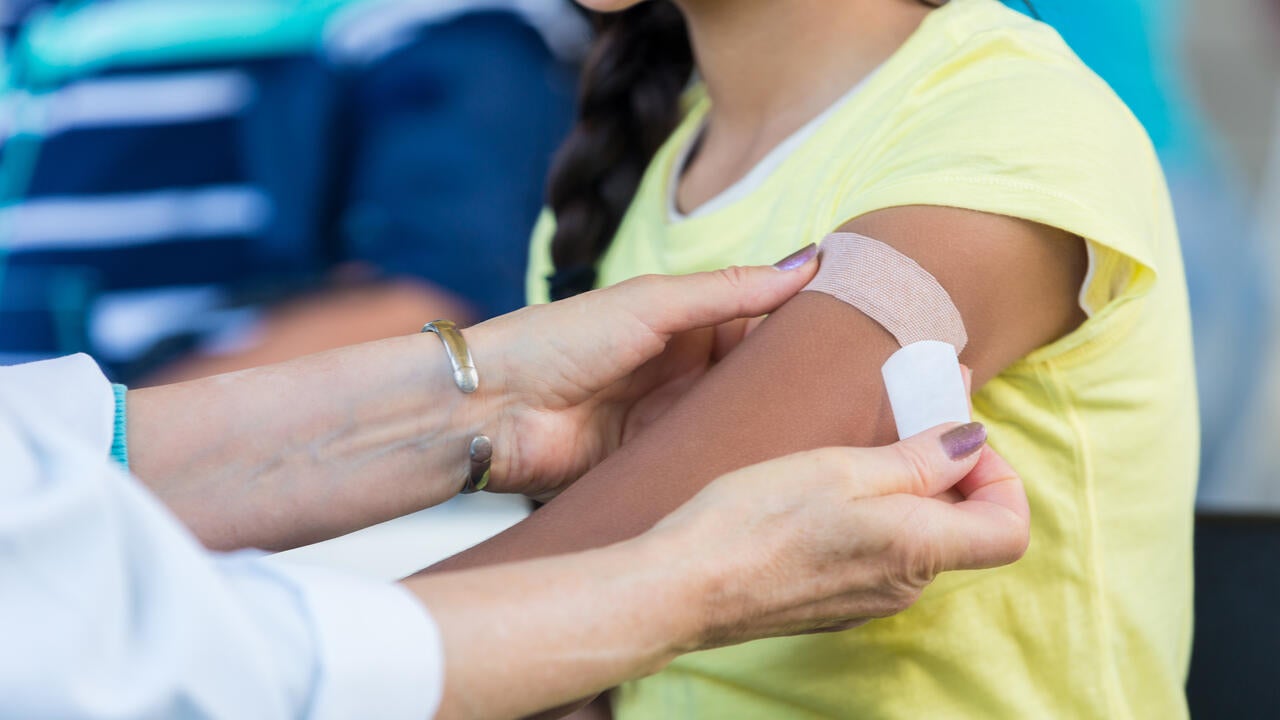
Q and A with the Experts: Everything you need to know about the 2022-2023 flu vaccine
You have questions, we have answers about this year's flu vaccine

You have questions, we have answers about this year's flu vaccine
By Media RelationsInfluenza, also commonly known as the flu, is an infection caused by a virus. Symptoms affect each person differently, ranging from mild to severe and include a high fever to aching muscles and a sore throat.
By getting vaccinated, you significantly reduce your risk of contracting the flu and help limit the spread of the virus within the community. Dr. Nancy Waite, pharmacist and professor at the University of Waterloo, researches vaccine access, education and delivery. Waite answers some key questions about this year's flu vaccine.
What viruses will this year's flu vaccine protect me from?
The composition of the annual flu vaccine is determined by experts based on predictions of which influenza strains are most likely to be circulating. The vaccine typically targets the most common and potentially dangerous strains of the virus, including both Influenza A and Influenza B variants.
Which flu vaccine should I get?
The choice of which flu shot to get largely depends on your age and any specific medical conditions you may have. There are different types of flu vaccines available, including the standard dose suitable for most individuals and the high-dose and adjuvanted vaccines recommended for older adults.
Why do I have to get a vaccine every year?
Influenza viruses are known for their ability to mutate and change over time, rendering previous vaccinations less effective. To remain protected, receiving an annual flu vaccine that targets the most current strains in circulation is necessary.
Should my child get the flu vaccine?
Yes, it is highly recommended that children receive the flu vaccine as they can be particularly vulnerable to the flu. Consult with your child's medical care provider for guidance on the appropriate vaccine for your child's age.
Where can I get a flu vaccine?
You can receive a flu shot at your local pharmacy, healthcare clinic, public health clinic or even some workplaces and schools. With so many options available, access is easy, so get it wherever and whenever is most convenient for you.
This series is produced for the media, and its purpose is to share the expertise of UWaterloo researchers. To reach this researcher, please contact media relations.

Read more
And a new model for how quantum research is shared — opening doors for the next generation of scientists and entrepreneurs

Read more
Here are the people and events behind some of this year’s most compelling Waterloo stories

Read more
Meet five exceptional Waterloo graduate students crossing the convocation stage as Class of 2025 valedictorians
The University of Waterloo acknowledges that much of our work takes place on the traditional territory of the Neutral, Anishinaabeg, and Haudenosaunee peoples. Our main campus is situated on the Haldimand Tract, the land granted to the Six Nations that includes six miles on each side of the Grand River. Our active work toward reconciliation takes place across our campuses through research, learning, teaching, and community building, and is co-ordinated within the Office of Indigenous Relations.